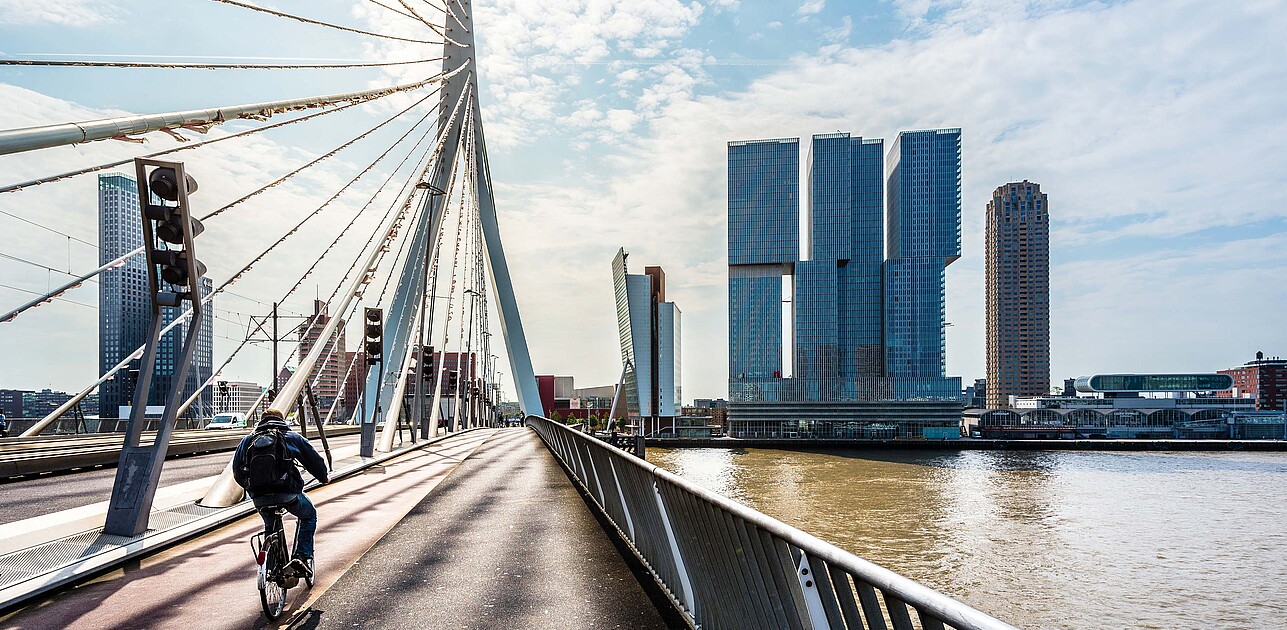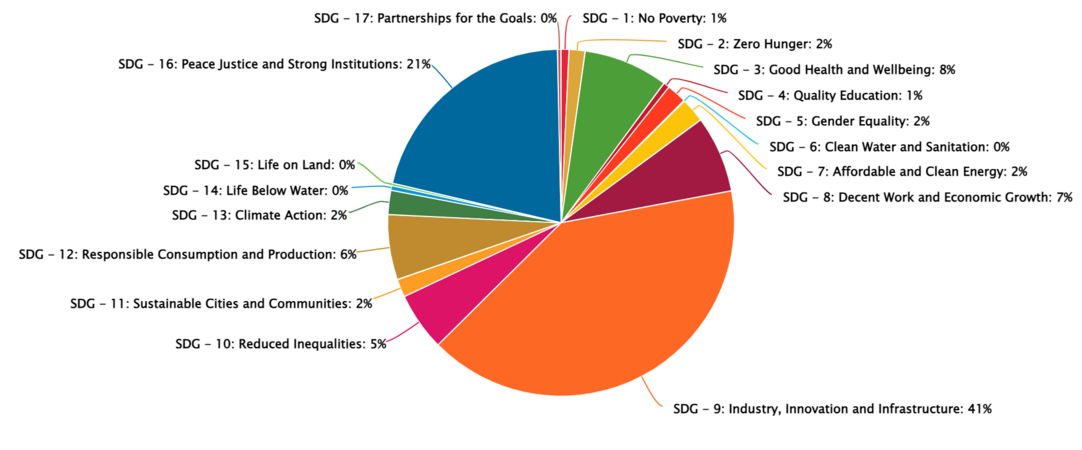

Reading time: 5 minutes
RSM’s three pathways of change: (1) Thought leadership, (2) Formation of human capital and (3) Innovation, transformation and entrepreneurship, represent the focus of the way RSM achieves impact. RSM’s policy director Wilfred Mijnhardt explains: “If we create a sense of urgency around transformative impact topics – particularly education, gender and equality, energy decarbonisation, health and well-being, food security, sustainable cities, and sustainable development through the digital revolution – and we can relate the three pathways to these topics, the building blocks of transformative impact will come together in a school-level impact narrative.
As one of the initiatives to build its impact narrative, RSM began mapping how its education, research and communications relate to the SDGs using the SDG mapper. The RSM SDG mapper is a trained artificial intelligence algorithm that maps the school's global footprint in relation to the UN Sustainable Development Goals (SDGs). For example, the SDG mapper shows that more than 75 per cent of RSM research is related to the SDGs. We are proud that his methodology has been adapted by multiple business schools to measure the relation of their activities to the SDGs.
One of the outputs that we look at is our significant annual production of MSc theses that relate to the SDGs. Since 2017, more than a thousand MSc theses have related to several SDGs, but we have a particularly substantial relationship with SDG 9 (Industry, innovation and infrastructure) and SDG 16 (Peace, justice and Strong institutions). They both represent the economic dimension.

To effect positive change on the SDGs, however, RSM needs to develop a strategic narrative that addresses multiple dimensions of impact. “There are two models for SDG impact – direct and indirect. In the indirect model, the focus isn’t directly on SDG impact, but on businesses engaged in transformative actions. In doing so they create SDG impact,” says Wilfred.

Wilfred believes it's naive to think that schools can have a direct, transformative impact on the SDGs, simply because the scale of the SDGs is so huge. "There are so many influences and stakeholders involved in the roadmap for the SDGs," he says. "It's more effective to focus on the transformative change that can be achieved through business, rather than naively focusing on achieving the SDGs directly. By taking a transformative approach, business schools gain more credibility as agents of positive change. After all, business schools exist to serve business, not the SDGs."
As an example, Wilfred points to the digitalisation of supply chains. "Supply chain digitalisation is a transformative issue because companies are changing the way supply chains are organised. These systemic changes have a transformative impact on many societal challenges such as environmental quality, poverty, innovation and more. RSM is influencing the digitalisation of supply chains through its research, education and engagement, and this is where and how our impact is made," he says.
It's more effective to focus on the transformative change that can be achieved through business, rather than naively focusing on achieving the SDGs directly.
Wilfred Mijnhardt, policy director, RSM
Relative to this holistic perspective, Prof. Daan Stam, RSM’s former dean of engagement and partnerships, says: “Valorisation – the creation of value from knowledge – is often seen as solely relating to research. However, it goes beyond that. Education also creates value – teaching cases and professional development, for example. And this is also engagement. We also have a really big role to play in helping other schools and faculties collaborate successfully with business – particularly in the context of Erasmus University Rotterdam. As an example, we have launched an MSc in Medical Business & Innovation in collaboration with the Erasmus Medical Center. This is an example of really bridging between management science and medical science, and the creation of tremendous value.”
Having a clear vision of, and a complete story for our impact is coupled with our responsibility to be compliant towards international business school accreditations like AACSB, EQUIS and AMBA.
Accreditation agencies invite business schools to demonstrate their values and standards, and in RSM’s case, we use our commitment to positive societal impact which is expressed in and supported by our mission, our curriculum that promotes innovation, experiential learning, and a mindset for lifelong learning. The school demonstrates impact through internal and external initiatives and/or activities that are consistent with the school's mission and strategies.
“In our recent 2024 AACSB accreditation, we demonstrated that the challenges, the ‘mission-orientedness’, and the implementation of the choices that we’ve made do genuinely produce results,” says Wilfred Mijnhardt.
“It was very satisfying to receive the label of ‘best practice’ from the accreditors’ peer review team for three of our initiatives: the part-time PhD programme for senior practitioners, our MentorMe alumni programme, and our SDG mapping tool.”
We will continue working on initiatives across all three pathways; in thought leadership, in the formation of human capital, and through innovation, transformation and entrepreneurship. Our current strategic focus is on developing the organisational and institutional capabilities in the school to systematically contribute to them. At the time of writing, we are working on a new strategic plan for Centres and the development of our lifelong learning portfolio, and engagement for leadership, corporate relations, innovation initiatives for education and research, and the further development of entrepreneurship at the School. Stay tuned through our social media channels, our website, and our research communications.